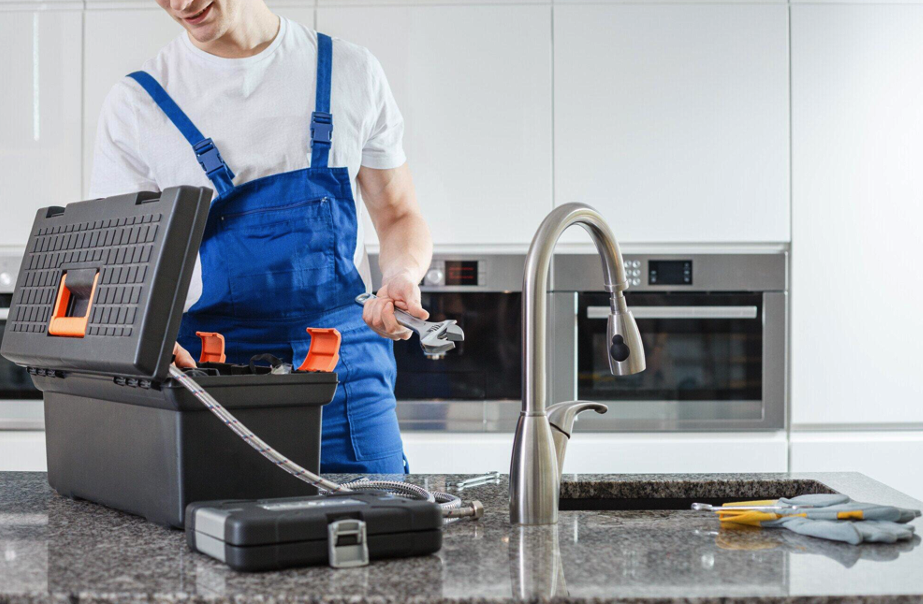The significance of a well-functioning plumbing system in a home cannot be overstated. From delivering fresh water to disposing of waste, plumbing impacts almost every aspect of daily living. A leak or a burst pipe can quickly escalate into a costly and stressful situation, underscoring the need for skilled plumbing experts.
Homeowners often face the challenge of finding a reliable plumber who can address their problems efficiently and affordably. Choosing the right plumbing contractor is crucial, not only to fix immediate issues but also to ensure long-term safety and efficiency in your home's plumbing system.
This guide will help you identify the key attributes to look for when hiring a plumber, ensuring that you make an informed decision for your home.
1. License and Insurance
The first thing to check when hiring a plumber is whether they are licensed and insured. A license is a basic indicator that the plumber has the necessary training and adherence to building codes required for the job. It provides a level of trust and professionalism that unlicensed counterparts might not offer. Insurance, on the other hand, protects both you and the plumber in case of any injuries or accidents that occur on the job. Hiring someone who is fully insured is essential; it means that any potential damages or mishaps are covered, and you won’t be facing unexpected liabilities.
2. Experience
Experience is a key factor when choosing a plumber. More years in the field usually mean that the plumber has encountered and solved a myriad of plumbing issues, which can assure you of their capability to handle similar problems in your home. When discussing their experience, ask about specific types of jobs they’ve handled, especially those similar to your needs. For instance, plumbers experienced in water heater installation jobs can provide insights and recommendations that might save you money and prevent future problems.
3. Cost Estimates
Before any work begins, it’s important to get a clear and detailed cost estimate. This should include the labor, parts, and any potential additional fees. A trustworthy plumber should be transparent about their pricing and willing to provide a written estimate. Be wary of prices that seem too good to be true; they often are and could be indicative of subpar services or additional charges that will surface later. Comparing estimates from different plumbers can also provide insight into the typical costs and help you make a balanced decision based on cost and value.
4. References and Reviews
A reliable way to predict the quality of a plumber's work is by examining what past customers have to say. Online reviews and ratings can provide a snapshot of other people’s experiences with a particular plumber. Pay attention to comments about their professionalism, punctuality, and the quality of their work. Additionally, don’t hesitate to ask for references. A reputable plumber won’t hesitate to provide contact details for previous clients. Speaking directly to these customers can give you confidence in your hiring decision.
5. Guarantees and Warranties
A plumber’s willingness to offer guarantees and warranties on their work speaks volumes about their confidence in their skills. Such commitments ensure that in the event something goes wrong post-repair, the issue will be addressed without additional charges. Make sure to understand the terms of these guarantees and warranties, including their duration and what they cover. This not only protects your investment but also provides peace of mind knowing that you are covered should complications arise.
6. Availability
When plumbing emergencies strike, the timing of a plumber's response can be just as crucial as the quality of their work. Therefore, it’s important to consider a plumber’s availability. Find out if they provide service outside of regular business hours to handle emergencies. Ask about their typical response times, and whether they charge extra for services rendered during nights, weekends, or holidays. A plumber who is readily available at your time of need will be invaluable when you face urgent plumbing issues that can't wait.
7. Professionalism
Professionalism should be a cornerstone of any service provider you hire, and plumbers are no exception. Assessing a plumber's professionalism can be done through various indicators such as their punctuality, their communication style, etc. A professional plumber will respect your time by arriving on schedule and will communicate clearly about the scope of work and any complications. Additionally, a well-organized plumber often reflects attention to detail in their work. Observing these small cues can give you significant insight into their work ethic and operational standards.
8. Communication Skills
Effective communication is essential for any successful plumbing service. A competent plumber should be able to explain the problem, what needs to be done, and how much it will cost in a way that is easy to understand. This transparency allows you to feel informed and involved in the process, helping to build trust. Good communication also means they will keep you updated on the progress of the job and any changes that arise. Ensure the plumber you choose values and practices clear and open communication.
9. Local Knowledge
Hiring a plumber with extensive local knowledge can be a game-changer. Such professionals are familiar with the city’s plumbing codes and can navigate the permitting process swiftly if required. They are also likely to understand common issues in your area, whether it's hard water problems, old plumbing systems, or typical weather-related concerns. A local plumber is also more invested in maintaining a good reputation within the community, which can be beneficial for follow-up service and future repairs.
10. Up-to-Date Techniques and Tools
The field of plumbing is continually evolving, with new techniques and tools that can make solving plumbing issues less invasive and more cost-effective. Opt for plumbers who stay updated with the latest advancements in their field. Using modern equipment and techniques can minimize the time spent on fixing problems, reduce the disruption to your home, and even cut down on costs. Moreover, plumbers who invest in the latest technology are typically more efficient and capable of handling complex plumbing issues with ease.
Conclusion
Finding the right plumber is not merely about fixing a leak or unclogging a drain; it's about ensuring that your home’s plumbing system functions efficiently and safely over the long term. The factors outlined here serve as a comprehensive checklist that can guide you in choosing a plumber who not only meets but exceeds your expectations. Remember, the cheapest option is not always the best choice. Investing time and effort in selecting the right plumber will pay off by saving you money, time, and stress in the future. Approach this decision with the same seriousness you would for any other home renovation or repair project. A skilled, reliable, and professional plumber is a valuable asset to any homeowner. Be thorough in your vetting process, use this list as your guide, and choose someone you can trust to take care of your plumbing needs effectively and responsibly.
















